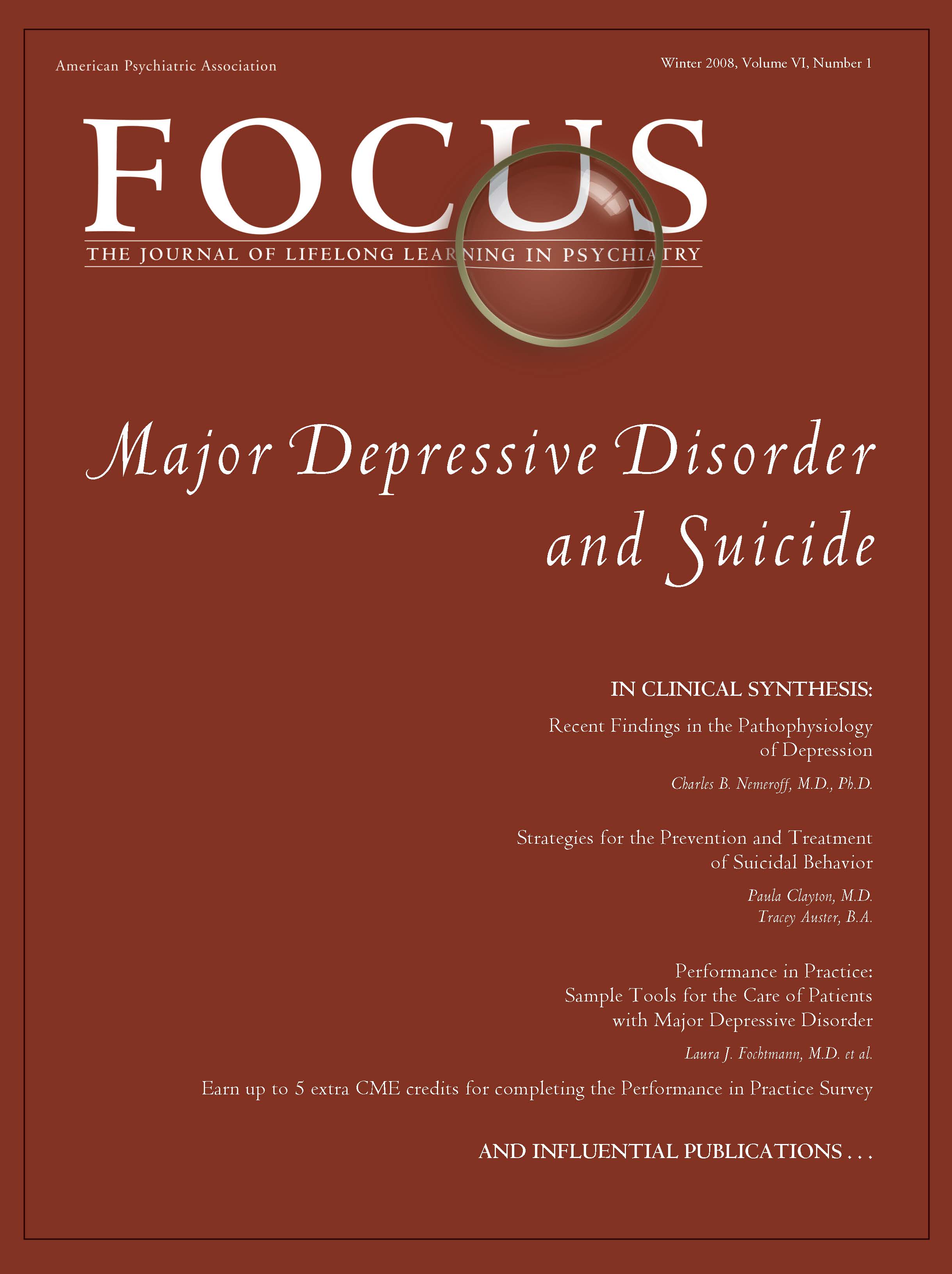Major Depressive Disorder and Suicide
Depression continues to be highly prevalent, accounts for more disability worldwide than any other disorder, and is the most significant risk factor for suicide. In this issue of FOCUS we review the interface between large-scale effectiveness trials, advances in neuroscience, and the development of new imaging techniques that have allowed practitioners in the field to begin to understand this diverse syndrome we call major depressive disorder.
We emphasize two ideas: one—we are beginning to make evidence-based decisions about etiology and approach to treatment of depressive disorders; and two—there is an understanding of where the field is with regard to the causes and an approach to the prevention of suicide. Because these topics have a historic relationship highlighted by recent U.S. F.D.A. reports, we felt it was important to combine thoughtful work about neurobiology and treatment of depressive disorder with state-of-the-art pieces addressing suicide.
This issue also features Performance in Practice tools for Major Depressive Disorder. Laura Fochtmann and coauthors provide two distinct PIP tools, one designed as a traditional retrospective chart-review and the other designed as a “Real Time” survey instrument. We hope you will review these Real Time PIP tools and return the survey on Real Time PIP to us for additional CME credit. Your comments about the utility and effectiveness of the Real Time MDD tool will provide valuable feedback. This is an opportunity for you to join with APA in the development of useful PIP tools. APA and FOCUS are committed to enhancing Lifelong Learning and providing resources for psychiatrists to maintain their board certification and the highest quality practice.



